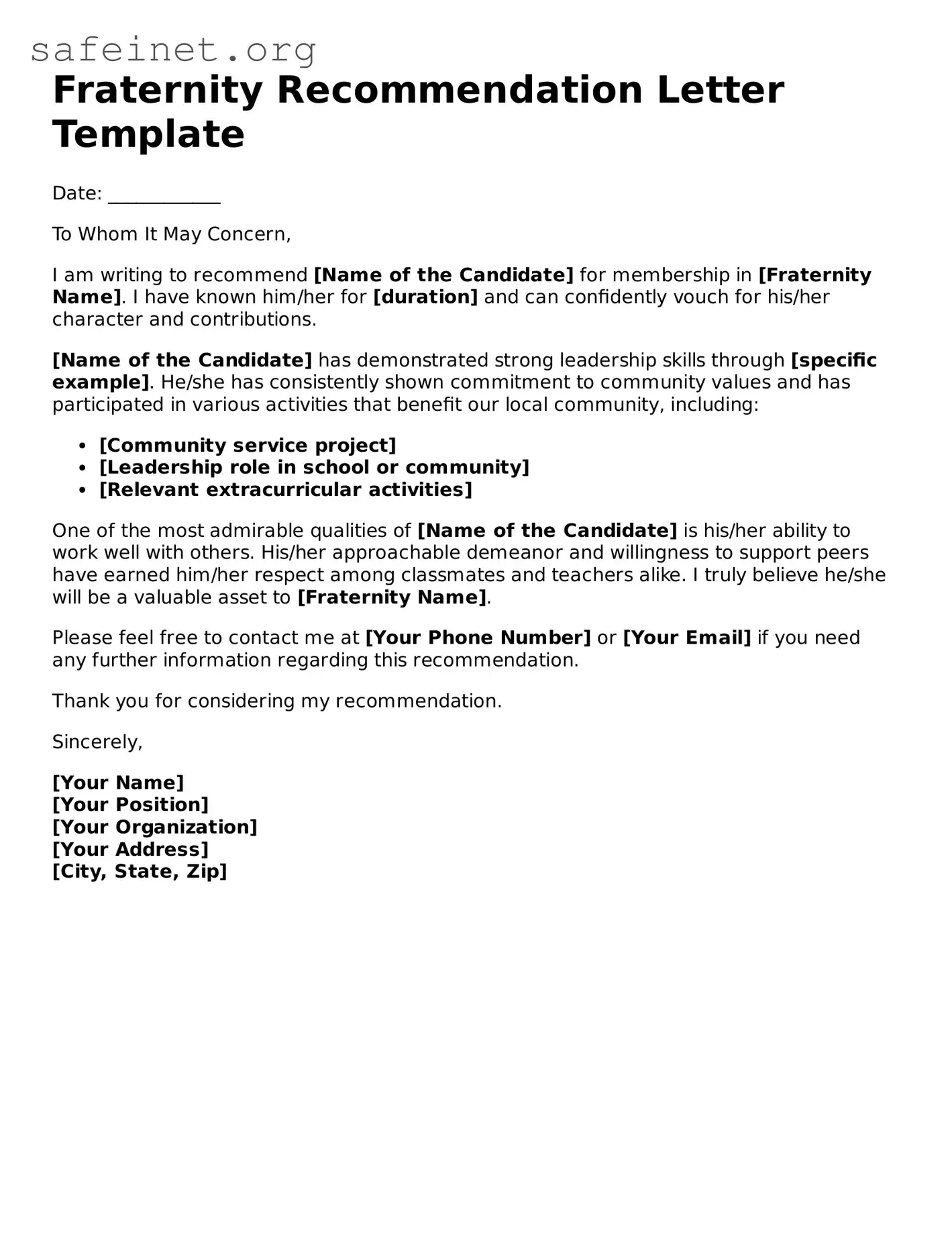What is a Fraternity Recommendation Letter Form?
A Fraternity Recommendation Letter Form is a document that helps potential new members of a fraternity by providing a formal recommendation from a current member or alum. This letter can highlight the candidate's qualities and qualifications, offering insights into their character, academic achievements, and social skills.
Who can submit a Fraternity Recommendation Letter?
The letter can be submitted by current fraternity members, alumni, or even individuals who know the candidate well, such as teachers or mentors. The person writing the letter should ideally have a relationship with the candidate and be able to provide a credible evaluation of their suitability for membership.
What information is typically included in the form?
The form usually asks for basic details about the candidate, including their name, academic information, and any extracurricular activities. Additionally, it may require the recommender to share their relationship with the candidate and include specific examples of the candidate's character and contributions. It may also ask for the recommender's contact information for follow-up questions.
Is a recommendation letter required for all fraternities?
Not all fraternities require recommendation letters, but many highly encourage them as they can significantly enhance a candidate's application. It's beneficial to check the specific requirements of the fraternity you are interested in to see if a recommendation letter is necessary.
How should the letter be submitted?
Typically, the letter can be submitted online through the fraternity's recruitment portal or sent directly to the fraternity's recruitment chair. Ensure to follow any specific instructions provided by the fraternity regarding submission methods, deadlines, and formats (e.g., electronic or printed).
When is the best time to submit a recommendation letter?
The best time to submit the letter is during the recruitment period, which may vary by fraternity and campus. Early submission is encouraged to review applications thoroughly. If you are unsure about dates, check with the fraternity or campus Greek life office for specific timelines.
What if I don’t know someone who can provide a recommendation?
If you lack a direct connection to a fraternity member or alumni, consider reaching out to friends or family members who may have connections. Alternatively, participating in campus events or activities related to the fraternity can provide opportunities to meet current members who can then perhaps write a recommendation. Building relationships before the recruitment process can benefit you significantly.
